As EV sales growth slows, automakers are rethinking prior plans, in some cases delaying, even canceling battery-electric vehicle projects. That includes Hyundai Motor Group, the Korean automaker previously announcing one of the industry’s more aggressive EV launch programs. But, in an exclusive report Headlight.News reveals Hyundai is not only studying whether to slow the rollout of new EVs, but also whether to make major changes to the $5.54 billion EV plant in Georgia currently set to start production in October. That would allow the facility to meet production targets by assembling more than just EVs, Hyundai officials revealed.
The U.S. EV market grew more than eight-fold from 2019 to 2023 but, as the industry shifts focus to mainstream buyers, rather than early adopters, the pace of growth has flattened out. And that has led many manufacturers to pull back on EV plans, whether postponing investments, delaying new products or targeting lower sales volumes. Hyundai Motor Group is the latest automaker to rethink its strategy.
The Korean carmaker – which markets vehicles in the U.S. through the Hyundai, Genesis and Kia brands – previously expected to have at least 18 all-electric models in production by 2030, with a target of selling 2 million EVs annually worldwide by 2030, according to HMG CEO Jaehoon Chang. And, as with its gas and hybrid vehicles, the U.S. was projected to be one of the largest markets.
A key element in the Hyundai strategy is the $5.54 billion EV plant in Georgia dedicated exclusively to EV production. Or, at least, it was supposed to be. But those plans may change.
“Adjusting” plans
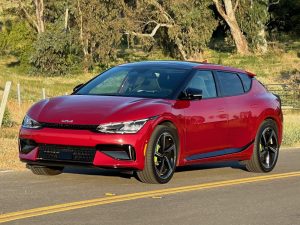
The Hyundai Motor Group scored big with the Kia EV6 named North American Utility Vehicle of the Year in 2023.
“There is a place for EVs (but) we are adjusting” plans, Manish Mehotra, vice president of digital business planning and connected operations for Hyundai Motor North America, said during a media briefing in Nashville. “If we need to, we can slow down a bit here, add a little there.”
In a subsequent conversation with Headlight.News, the executive stressed that Hyundai hasn’t abandoned any of the vehicle programs it has on the books. But with the current pace of EV market growth, the likelihood is that the rollout timing will be pushed back and volume targets could be adjusted.
“It’s being studied right now,” Mehotra added.
Georgia plant may no longer focus solely on EVs
The Hyundai brand currently operates one assembly plant in Alabama, with a separate Kia plant based in Georgia. The parent company broke ground in 2022 on a third facility in Bryan County, Georgia. Adding in the cost of an adjacent battery factory, the total investment is projected to come to $7,6 billion. Covering 2,900 acres, it will begin production in October – three months ahead of the original schedule – and produce EVs for both the Hyundai and Kia brands, as well as HMG’s luxury arm, Genesis.
The facility will have capacity to roll out 300,000 EVs annually. But whether the demand is there has become a critical concern.
As a result, HMG is looking at ways to increase the flexibility of the Bryan County complex, several Hyundai officials confirmed on the record. If possible, that would permit the plant to continue operating at or near capacity, even if EV sales slip, by also producing hybrid and plug-in hybrid vehicles, as well as models running solely on internal combustion power.
The study is ongoing, Hyundai officials told Headlight.News, with no specific target date for making any conclusions.
More Hyundai News
- Look Quick: Hyundai Ioniq 5 N is an Electric Rocket for the Masses
- First Drive: 2024 Hyundai Kona
- Hyundai Doubles Down on Hydrogen
An industry-wide issue

Other automakers are also rethinking EV plans, Ford CEO Jim Farley delaying $11 billion in spending.
EV sales set an all-time U.S. record in 2023, topping 1 million. That’s an eight-fold increase in barely four years. Demand “flattened out” during the last half of the year, said Tyson Jominy, head of data and analytics at J.D. Power. But that term can be misleading. While there’ve been a number of media reports suggesting EV sales are declining, that’s not close to accurate. Consulting firms such as Cox Automotive, Guidehouse Insights and S&P Global Mobility still forecast demand could hit 1.5 million in 2024.
A key concern is that even that number wouldn’t be enough to absorb all the new EVs coming to market this year – about 50, based on Headlight.News data.
Hyundai is by no means the only automaker concerned about that. Ford, for one, announced it is delaying $11 billion in EV investments. It has, among other things, put on hold a major battery plant in Kentucky while downsizing another in Michigan. General Motors has also made a number of adjustments to its EV plans, including a nearly two-year delay in reopening an assembly line in Orion Township, Michigan.




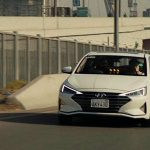
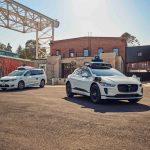

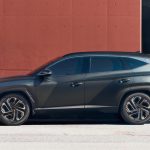
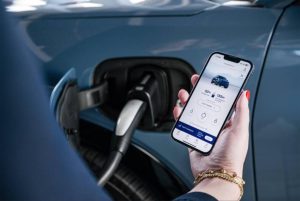


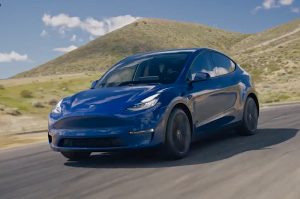

0 Comments